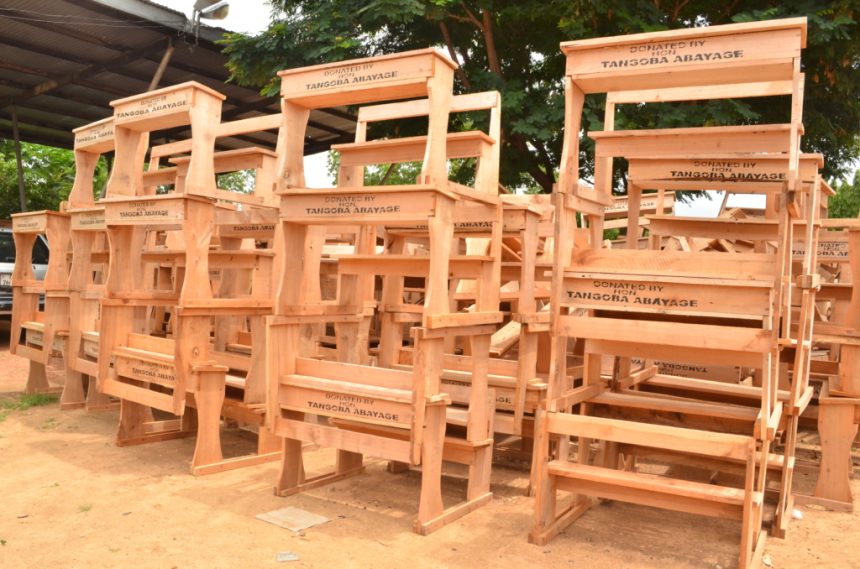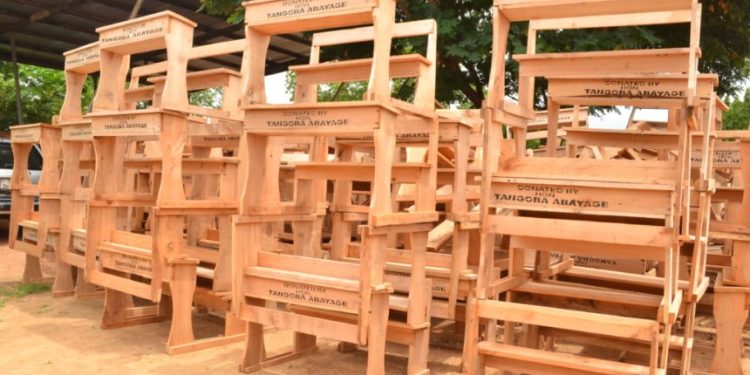
The Furniture and Wood Products Association of Ghana (FAWAG) has responded positively to President John Mahama’s recent directive to eliminate wooden furniture from educational institutions, affirming that the policy will not disrupt local manufacturers but rather accelerate innovation within the sector.
The announcement, made on June 5 during the World Environment Day celebrations in Accra, is part of a broader government initiative to curb deforestation, which has seen Ghana lose approximately 65,000 hectares of forest cover annually over the past decade, according to the Forestry Commission.
Christopher Dadzawa, FAWAG’s Administrative Assistant, emphasised that the industry is well-prepared for the change, noting that the transition toward metal-based furniture has been underway for over two decades.
“Since the early 2000s, FAWAG has championed the adoption of metal frames for school desks and chairs. In fact, our pilot project in 2003 introduced more than 5,000 metal units across select public schools, significantly reducing reliance on timber,” Dadzawa revealed during an interview with Channel One TV on June 6.
Currently, metal furniture accounts for nearly 45% of all school furniture produced domestically, with wood-based products making up the remaining 55%.
However, the association projects that within three years, metal furniture will dominate more than 80% of the market share for educational institutions.
Dadzawa highlighted multiple advantages of the shift, including increased durability, cost efficiency, and environmental sustainability.
“Metal furniture generally lasts 30% longer than wooden counterparts, translating into savings for schools and less frequent replacement cycles,” he explained.
The move also aligns with Ghana’s commitment to the United Nations’ Sustainable Development Goals, particularly Goal 15, which focuses on halting deforestation and promoting sustainable forest management.
The government estimates that banning wooden school furniture could reduce annual timber demand by up to 12,000 cubic meters, easing pressure on endangered hardwood species such as Mahogany and Odum.
FAWAG reassured that local producers stand to benefit from increased demand for metal furniture components, many of which are manufactured domestically.
The metal furniture subsector has grown by an average of 8% annually over the past five years, now employing over 4,500 workers nationwide.
“We expect this policy to catalyse further investments in metal fabrication workshops, which will create approximately 1,200 new jobs in the next two years,” Dadzawa projected.
FAWAG is optimistic that Ghana’s furniture sector will emerge stronger and more competitive internationally, leveraging innovations in materials and design. The association is currently exploring partnerships to incorporate recycled metals and environmentally friendly coatings, further reducing the industry’s carbon footprint.
DISCLAIMER: The Views, Comments, Opinions, Contributions and Statements made by Readers and Contributors on this platform do not necessarily represent the views or policy of Multimedia Group Limited.
DISCLAIMER: The Views, Comments, Opinions, Contributions and Statements made by Readers and Contributors on this platform do not necessarily represent the views or policy of Multimedia Group Limited.
- President Commissions 36.5 Million Dollars Hospital In The Tain District
- You Will Not Go Free For Killing An Hard Working MP – Akufo-Addo To MP’s Killer
- I Will Lead You To Victory – Ato Forson Assures NDC Supporters
Visit Our Social Media for More




